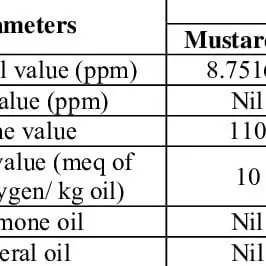The oil pressing process takes place at a temperature that should not exceed 40 ° C. This makes it possible to preserve such components of the oil as amino acids, enzymes and vitamins.
The oil obtained from mustard seeds has many different medicinal properties. Its therapeutic properties have a fairly wide spectrum of action. This oil is a good antiseptic, helps to fight diseases of the heart and various vessels, as well as the gastrointestinal tract. It will help with the healing of wounds on the skin, has bactericidal properties.
Mustard oil contains the following components:
– unsaturated fatty acids, including linolenic acid. It has similar properties as the omega-3 fatty acids found in fish oil, flaxseed oil;
– phytoncides;
– glycosides: sinigrin;
– vitamins such as vitamin A, vitamins D and E, F and K.
The oil, which is obtained from the seed of the bezerukovy Sarepta mustard, is good for making dietary meals.
If we compare mustard oil with other vegetable oils, then mustard oil has the lowest acidity and it can retain its properties much longer than others.
Cold pressed oil can be stored for more than two years. At the same time, it will perfectly retain all its taste.
Mustard oil contains a great variety of biologically active substances: tocopherols, sterols, chlolrophylls, pheophytins.
In addition, mustard oil contains all possible fat-soluble vitamins.
Of all the existing oils, only buckwheat and mustard oils contain carotene. Vitamin A in mustard oil can be stored for quite a long time, up to eight months. Retinol is useful in the development and growth of the human body, helps to increase immunity.
Vitamin B6 is not only contained in mustard oil by itself, but also causes the microorganisms that exist in the intestines to produce this vitamin. Vitamin B6 occupies a major place in nitrogen metabolism and in the processes of synthesis and decomposition of amino acids.
In mustard oil, vitamin PP is contained in a special form that is accessible and convenient for the body to assimilate. Nicotinic acid helps to improve the metabolism of carbohydrates, takes part in the processes of respiration of cells of various tissues of the body, in addition, promotes vasodilation.
Vitamin D is contained in mustard oil, in comparison with sunflower oil, one and a half times more.
Vitamin E can be stored in mustard oil much longer than in sunflower oil, namely 4-5 times. It should be remembered that if there is not enough vitamin E in the body, this can lead to metabolic disorders and local oxygen starvation.
Choline is also present in mustard oil. It also contains vitamins K and R. They increase the elasticity, strength of the capillaries and improve their permeability.
Mustard oil contains phosphatides. They have a good effect on the liver, which is weakened after a course of antibiotic treatment, under the influence of viral infections with various toxins.
Mustard oil goes well with vegetables and herbs. For this reason, it is convenient to use when preparing salads in spring and summer.
In addition, mustard oil is used in the production of hair and skin care products. With the help of this oil, you can solve problems with acne, herpes, dermatitis.










